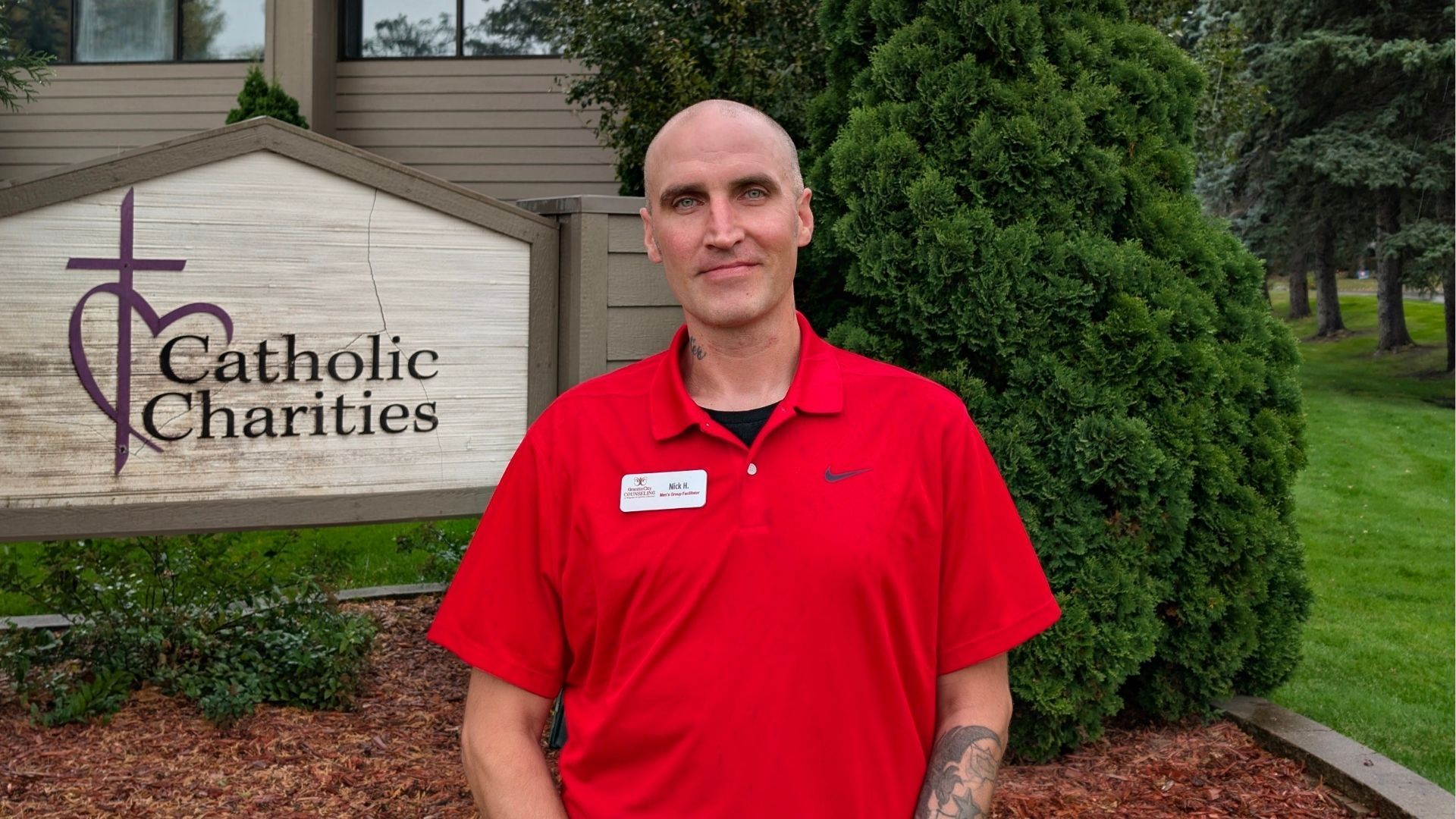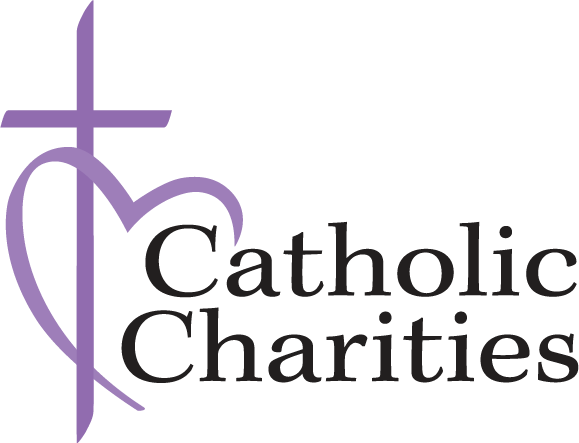Catholic Charities Food Rescue

CATHOLIC CHARITIES FOOD SHELF HELPS PEOPLE AND THE PLANET THROUGH FOOD RESCUE
Every day, vast quantities of food go to waste because grocery stores, food producers and even farmers have no other options. When packaged goods, dairy, produce and meats near the end of their “best by” dates, retailers, growers and food manufacturers are looking for an alternative to landfills.
With its Food Rescue program, Catholic Charities Emergency Service Food Shelf teams up with local food sources to divert safe, edible food from landfills and distributes it to households experiencing food insecurity.
“Food rescue does just what the name suggests: saves fresh and edible food from going to landfills,” said Eric Vollen, Catholic Charities Emergency Services program manager. “There are many reasons why food might not have sold at a business, including close-dated product, dents in the cans or overstock, and although it might not be perfect food, it’s good and nutritious food.”
According to Feeding America, the nation’s largest domestic hunger-relief organization, 119 billion pounds of food is wasted in the United States each year, which equates to 130 billion meals and more than $408 billion. Nearly 40 percent of all food in the United States is wasted, contributing heavily to carbon emissions which hurt our environment. Food waste is also a missed opportunity for the hunger relief network as this fresh and edible food could be helping feed families.
This is why Food Rescue business partners in the St. Cloud area, including Coborn’s, Cash Wise, Costco, Sam’s Club, Fresh Thyme and more are so important—all are participating in retail food rescue, collecting thousands of pounds of produce, dairy, deli, meat, bakery and grocery items for distributing to Catholic Charities Food Shelf.
Coborn’s grocery stores have been participating in retail food rescue for more than 15 years, with all 66 Coborn’s stores across North Dakota, South Dakota, Minnesota, Wisconsin and Michigan participating and providing food to those who need it in their communities.
“Our Food Rescue partnerships with foodservice retailers like Coborn’s allow us to gain access to unsold, yet wholesome food that would otherwise be wasted,” said Vollen.
“Plus, food rescues from grocery stores, restaurants and farms that donate to Catholic Charities Food Shelf and other nonprofit food rescue organizations can get a tax deduction for their donation. It’s a nice incentive for those businesses not to toss that food in the trash.”
MPCA and Local St. Cloud Companies Also Help Prevent Wasted Food
When food spoils or is thrown away before we eat it, the resources that went into creating the food are wasted. The food takes up space in landfills and releases greenhouse gases as it decomposes, rather than nourishing people or helping alleviate food insecurity.
The Minnesota Pollution Control Agency (MPCA) is committed to ensuring that every Minnesotan has healthy air, sustainable lands, clean water and a better climate, and in 2019, launched the “Prevention of Wasted Food and Food Rescue” grants program. The program, approved by the Legislature in 2019, is specifically designed to fund projects that help feed hungry people and help organizations minimize their wasted food.
In 2022, Catholic Charities Food Shelf collected 1,026,276 pounds of food through its Food Rescue program and was awarded the MPCA’s “Prevention of Wasted Food and Food Rescue” grant for help in building a new walk-in freezer.
A new walk-in freezer was a critical need, as Catholic Charities Food Shelf has seen a 120 percent increase in the number of pounds of food rescue collected annually. The food shelf needed an increase in storage capacity, or it would need to continue to outsource freezer space and turn away food rescue collections.
The new walk-in freezer addition was completed by local businesses SCR (St. Cloud Refrigeration) and Rice Companies, Sauk Rapids, who both contributed significantly to the project, bringing it to life.
“This additional 400-square feet of freezer space helps us in feeding our community and ending food insecurity,” said Vollen. “With the generous help and support of our state and community, we can continue serving healthy and nutritious food to our neighbors who need it most.”
The benefits of food rescue are many. It helps both food shelves and families save money, offering no-cost nutritional food while helping tackle food insecurities. Food rescue also prevents thousands of pounds of edible food from ending up in landfills, where it could create environmental pollutants as it decays.
Our Recent News




